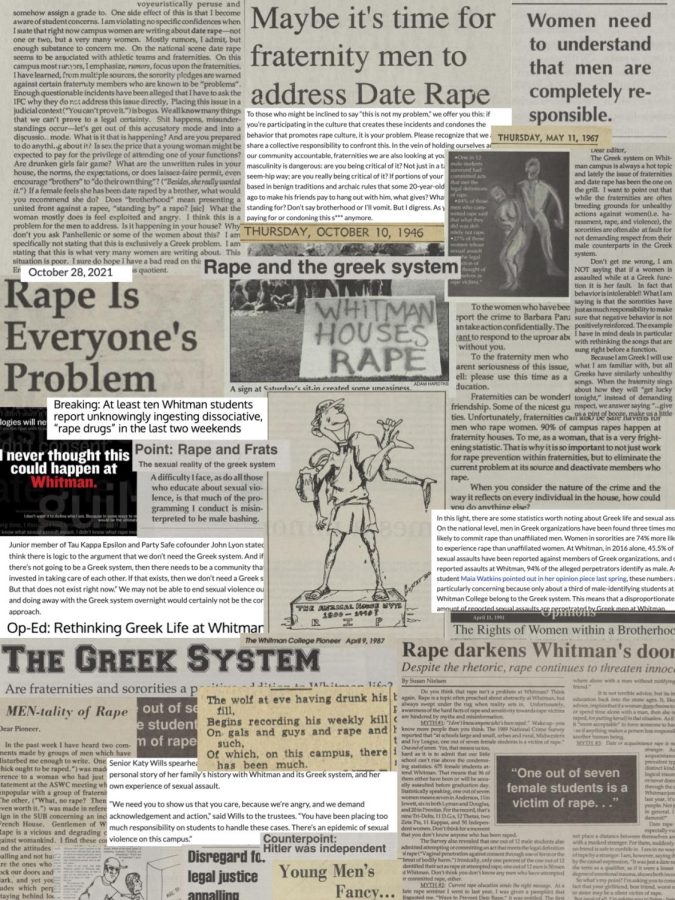As a true example of antiquity in conversation with modernity, the upperclassmen I knew as a first-year still called Encounters “Core.” Over the past four years at Whitman, the Encounters program has changed dramatically. Now the name itself seems to reflect a distinct guiding ethic or ideal that the first-year course attempts to fulfill.
I appreciate that Encounters is not a “core” canon, mostly because it seems impossible to reduce what is most valuable to an essence of some 20 texts. Variety and circulation keeps the program alive and open to a greater wealth of texts that each year’s students can incorporate into discussions on campus. I also know that the decisions to remove the Quran, the “Gospel of Luke” and “The Book of the City of Ladies” was more complicated in context than a declaration that the individual texts are not valuable for the course. That said, I hope to see the Quran’s re-inclusion soon. It seems like an apt moment to engage with this text, for broader social reasons and pragmatic ones.
When I think of a “core,” I think of something essential, unchanging and canonical. A first-year “core” would suggest to me that the texts included in such a class form a statement about the fundamental sources of a Whitman education. On the other hand, when I think of “encounters,” I think of movement and contact. I think of a changing body of texts, where voices surface or reemerge and hopefully engage one another in surprising ways.
I sustained this impression of movement and change after talking with a few professors and meeting with Professor Timothy Doyle, a member of the Encounters committee, who generously agreed to discuss the process of altering Encounters curricula. He explained that Encounters is constantly changing in order to explore new material or evoke fresh dialogue between texts.
For a truly frustrating and frightening 15 minutes of your life, Google FOX News’ interview with religious scholar Reza Aslan. This interview is a striking example, and far from the only one, of the way misinformation on Islam and the use of minority extremist groups to represent the entire religion have precipitated Islamophobia. Obviously Encounters cannot address every pressing social issue. However, in addition to the social relevance of being familiar with the Quran, Whitman is also in a position to freshly approach the text and explore new possibilities for its contributions to the course.
This year, the Religion Department has the additional resource of Assistant Professor Lauren Osborne, who specializes in Islamic studies. She wrote a proposal on presenting the Quran in ways that would open its potential in a micro setting like Encounters, such as rearranging the order of the assigned suras. Currently they are assigned from the front towards the back, which is actually roughly in reverse-chronological order; the earliest suras are in the back of the Quran while the newest ones are in the front. A move from front to back begins with more law-oriented suras before reaching the conceptual tenets that inform them. Rearranging the suras has the potential to open new possibilities in discussion. Also, Encounters makes an effort to include different media of “text,” but right now the texts are almost exclusively visual. The oral tradition of the Quran is another dimension that could enrich its conversation with other sources.
Rather than a canon, Encounters has become a vehicle to explore the possibilities within changing arrangements of voices. To me, the Quran seems a strong candidate for re-inclusion in this arrangement. Both ideally and pragmatically, we’re in a prime position to explore the possibilities for dialogue that the Quran presents.
-Mary Christensen


